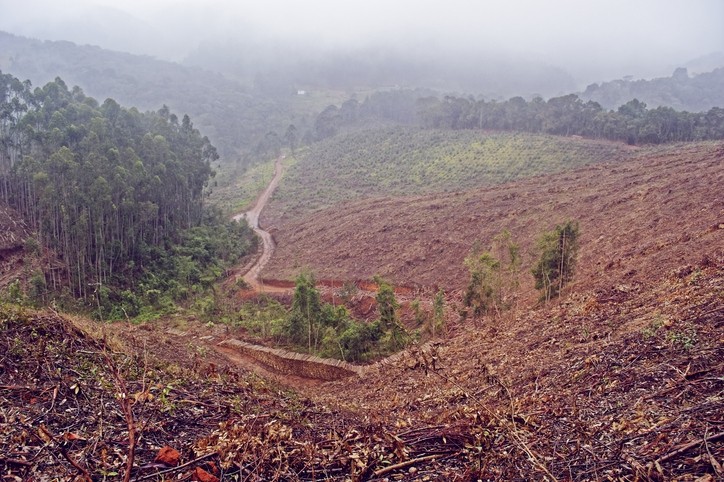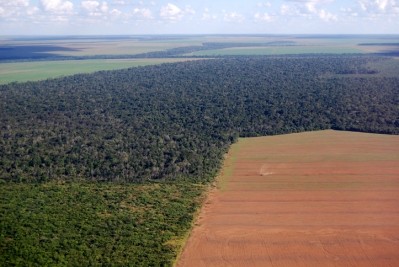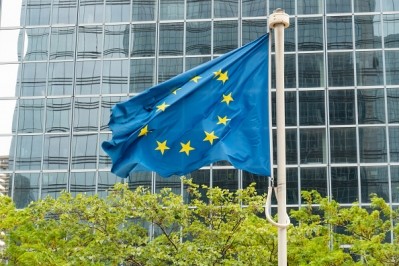‘There is a sense of impunity in both Brazil and Bolivia about deforestation and burning’

His comments contradict those of Greenpeace France executive director, Jean-François Julliard, last Friday, who said:
“Once again, Emmanuel Macron is making bold statements which have yet to be matched by actions and political decisions. France and other developed countries are responsible for the dire Amazon situation through their economies and contribution to imported deforestation, fueled by ill-designed public policies in sectors like agriculture, timber and bio-energies.”
But Hurowitz maintains that the deforestation that is happening would not be getting anywhere near the level of attention that it is if Macron had not called for action.
“Also, the fact that he and other EU leaders are saying they will block the EU-Mercosur trade agreement over this issue creates huge pressure on Brazil to take action. Brazil and the other Mercosur countries – Argentina, Uruguay, and Paraguay - really want the trade deal, and I think they will do what it takes in the short term to secure it.”
A record number of fires is burning in Brazil, most of them in the Amazon, as per data provided by the country's National Institute for Space Research (Inpe).
Last week saw Macron describe the fires as an international crisis with the French leader pushing for them to be made a priority at the G7 summit. Today, leaders of the G7 countries announced they have agreed to provide logistical and financial support to help tackle the Amazon fires, saying G7 countries would release $20m in emergency funding.
Governance challenges
There is a sense of impunity in both Brazil and Bolivia about deforestation and burning that spurred this wave of fires, with less responsible producers picking up on clear signals from both the Brazilian and Bolivian governments, claimed Hurowitz.
“Both Jair Bolsonaro, [Brazil’s president], and Evo Morales, [Bolivia’s president], have encouraged the burning of forests to grab land and expand agricultural production. And Brazil’s environmental enforcement authorities are giving advanced notice about inspections, so producers feel they can get away with deforestation," said the environmental campaigner.
'The ten counties in the Brazilian Amazon region experiencing the greatest number of fires also represent 43% of all deforestation detected so far this year. The rates are highest in the states of Acre, Amazonas, Mato Grosso, Rondônia and Roraima, home to a significant proportion of indigenous people.'
Source: Statement from Sonia Guajajara, executive coordinator of APIB, the Articulation of Indigenous Peoples of Brazil, August 26, 2019.
Indeed, Bolsonaro has repeatedly said he believes Brazil should open the Amazon up to business interests, to allow mining, agricultural and logging companies to exploit its natural resources.
Mighty Earth is looking to see if the international pressure, on Brazil in particular, will lead to a sudden change.
“The mobilization of the army [in Brazil] to stop the burning is a positive measure, but we are concerned that it may only be short-term one. I doubt Bolsonaro has become a tree-hugger overnight,” continued Hurowitz.
Meanwhile, Brazilian soybean processors group, Abiove, said last Thursday [August 22] that it is “cautiously following” recent statements on preserving the Amazon. It also reiterated its commitment to the sustainability agenda, stressing that the fight against deforestation was a priority. Abiove added that its companies do not acquire or finance soy from farms where deforestation has been detected.
Mapping industry links to fires
Mighty Earth has been looking at those supply chains, working with the University of Wisconsin and the National Wildlife Federation to map out which companies are most linked to the fires. “We are finalizing that data now, and will release it in the coming days,” said Hurowitz.
The parties involved in that mapping project have been tracking the location of silos and slaughterhouses in the regions where the recent fires have been, he said.
“In some cases, we do know, based on past research, specific supply chains, and we also know, through our rapid response project, about commercial relationships. In addition, we are drawing on data from Trase. It is about piecing all of that together to gain a full picture.”
The campaigners argue, though, that even the mere presence of a big slaughterhouse or soy silo in a region can create an incentive for deforestation.
Bolivia has seen 2.5m acres burn there in the past two weeks, which is vast destruction, said the head of the not-for-profit group.
He said Mighty Earth is trying to gather more information about supply chain dynamics in Bolivia, but it is somewhat challenging as data are more limited than in Brazil.
“There is a huge level of anger in Bolivia around this. Scientists and organizations based there are reeling. There are elections scheduled for October in that country. Let’s see if that anger affects the election outcome.”
FEFAC president, Nick Major, said it would be wrong to point to European use of soybean meal as a driver of the fires in the Amazon.
Soy grown on deforested land from the Amazon Biome as an origin is excluded due to the Amazon Soy Moratorium (ASM).
"FEFAC supported the development of the ASM in 2006, which is still in effect. European feed companies therefore do not source from the Amazon Biome.
"In addition, EU soy imports from South America have drastically declined over the past year and half, to the benefit of soy imports from the US.
"In 2015, FEFAC also developed its Soy Sourcing Guidelines, which help to ensure the exclusion of illegal deforestation. As of August 2019, over 160 European feed companies have voluntary committed to sourcing soy for feed purposes according to the Soy Sourcing Guidelines by 2025."
Cultivation on cleared land
Deforestation is not necessary. A lot of it is down to poor planning, especially in Bolivia, he said.
Bolivia, like Brazil, has vast areas of already cleared land to meet production goals without any habitat loss, he added.
“It is important to say that, in Brazil, two thirds of the expansion for soy, at least, does actually occur on previously degraded land. It is the norm and it really is a small percentage of producers that are causing outsize damage,” said Hurowitz.
Traders can play a role by encouraging soy expansion on already cleared land only, either by saying they are not going to buy from farmers involved in deforestation or by providing incentives to shift, he added.
Dismantling of environmental protections
Brazil’s environmental governance has never been perfect, said the authors of a blog post published on the website of the London School of Economics and Political Science last month. However, the writers said the country, which is the holder of the largest tropical forest in the world, has, in the last three decades, made important international commitments to combat deforestation and biodiversity loss.
Institutionally, over that period, the Ministry of Environment in Brazil focused on formulating environmental policies to align the development of the country with the concept of sustainable development framed in international agreements, building relationships with international institutions and countries such as Norway and Germany on a bilateral basis, they noted.
However, the authors observed that, under the administration of Ricardo Salles, the current Ministry of Environment has changed direction from promoting sustainable development to promoting an environmental dismantling rooted in ideological reasons.
“Indeed, Bolsonaro has declared numerous times his ideological aversion to environmental institutions in general, linking them to left-wing political movements and blaming them for the current economic and social crisis in Brazil.”
Ricardo Salles has also dismantled a numerous amount of environmental policies established by former governments to tackle deforestation and climate change, including the previous environmental fines conversion program aligned to the IPCC climate change adaptation framework, wrote the two researchers.
“Other policies are under explicit threat such as: the consolidation of legal reserves and conservation units; the delimitation of indigenous lands; and the effectiveness of the environmental monitoring program by publicly announcing the sites where command-and-control inspections will take place... The green light for environmental destruction clearly points towards an increase in deforestation."









